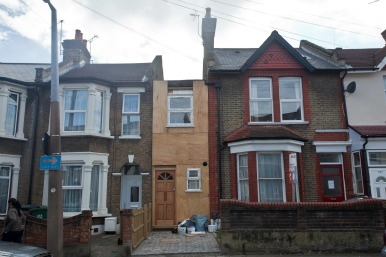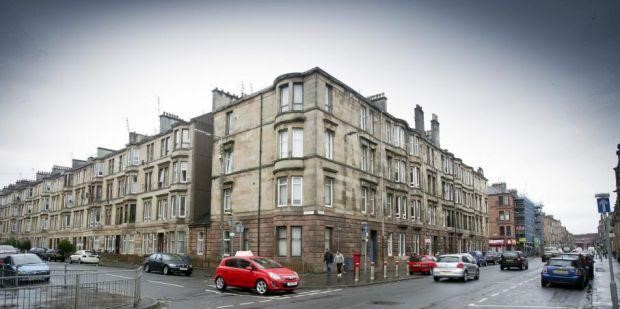593: UK Trends that can Help Property Investors
02-04-2017
PropertyInvesting.net team
This Special Report describes some socio-economic trends in the UK and their likely impact on property investing and the property market.
Church: The levels of Christian church going has crashed in the last 50 years and we expect this to continue as fewer Christians go to church each week and feeling less religious. More church and chapel closures is inevitable. These churches and chapels will be sold off after a while, some will lie vacant for extended periods these churches and chapels could make good house or flat conversions, or holiday home conversions for rental. Most chapels are well constructed, with very high ceiling and are suitable for the installation of mezzanine or additional floors. For property investors that are interested in these opportunities, its very important to check the church covenants and legal papers and all conditions of sale and future usage. Some deeds stipulate it is not possible to convert a chapel to residential use for instance. You will also have to seek advice from the councils local planning office to see if they would support the conversion of such a property when you apply for planning permission, before putting down an risk money (cash).
Drinking: Early morning (binge) drinking that hedonistic pass time that was very common in the 1970s-2000 seems to be becoming far less popular now. This is highlighted by the shutting down  of many traditional pubs and nighclubs many originally stayed open until around 5am. In London and the provinces, both are becoming rarer. Pubs normally only survive now by also serving food. It seems a combination of high costs of nightclubbing, young people having less money to spend, peoples interest in fitness/training and social media making it difficult to be hedonistic without people taking videos, photos then posting them on Facebook/Twitter mean both heavy drinking pubs and clubs are shutting down rapidly. This is of course an opportunity for a property investor who specialises in conversions of pubs to homes and nightclubs to homes/flats.
of many traditional pubs and nighclubs many originally stayed open until around 5am. In London and the provinces, both are becoming rarer. Pubs normally only survive now by also serving food. It seems a combination of high costs of nightclubbing, young people having less money to spend, peoples interest in fitness/training and social media making it difficult to be hedonistic without people taking videos, photos then posting them on Facebook/Twitter mean both heavy drinking pubs and clubs are shutting down rapidly. This is of course an opportunity for a property investor who specialises in conversions of pubs to homes and nightclubs to homes/flats.
Shopping: In the last ten years, the amount of retail shopping performed on the internet has risen at least ten fold. The goods and services purchased online is now around 25% of all retail purchases and the levels of growth are dramatic around 20% per annum. We predict far more shop closures in the next 10-15 years. All but prime shopping streets will lie empty, derelict or for sale and many will be converted. The tren d towards small shops closing has of course been going on for years and accelerated with the advent of the large out of town warehouse shops, retail parks and supermarkets. But we are now into a different place where even the out of town warehouse shops are closing, largely because of the internet shopping boom. The property investment opportunity is therefore to specialise in converting small-medium sized shops into residential homes flats or houses. Many people particularly young single renters love to live in the middle of towns and cities, so conversion of such properties to residential lets is probably a good lucrative strategy. Okay, parking could be an issue and you would of course need planning permission to take a commercial space into a residential space, but for lower end rental properties for young professionals and students, converting a shop with empty storage floors above into multiple small flats to rent out could be very high yielding, particularly if you have a good low cost professional builder and some considerable cash to invest (and risk).
d towards small shops closing has of course been going on for years and accelerated with the advent of the large out of town warehouse shops, retail parks and supermarkets. But we are now into a different place where even the out of town warehouse shops are closing, largely because of the internet shopping boom. The property investment opportunity is therefore to specialise in converting small-medium sized shops into residential homes flats or houses. Many people particularly young single renters love to live in the middle of towns and cities, so conversion of such properties to residential lets is probably a good lucrative strategy. Okay, parking could be an issue and you would of course need planning permission to take a commercial space into a residential space, but for lower end rental properties for young professionals and students, converting a shop with empty storage floors above into multiple small flats to rent out could be very high yielding, particularly if you have a good low cost professional builder and some considerable cash to invest (and risk).
Giant Warehouses: This opportunity is for the big property investor. As internet shopping booms further, more goods will be transported from giant central warehouses close to good roads. However in peripheral towns and cities, some large superstores will close the opportunity is to purchase the warehouse or superstore and the land, then knock the warehouse down and build lots of small houses, may be three story detached and terrace houses with loft conversions high density but nice a housing estate. You will notice retail parks have super road communications roundabout and services installed already, with shops and petrol stations close by and plenty of parking. With the severe housing shortage, surely planning authorities would look kindly on a commercial to residential planning conversion in such brownfield site better than building on greenfield sites. The infra-structure already in place makes such developments are nice flat land more economic than they would normally be.
notice retail parks have super road communications roundabout and services installed already, with shops and petrol stations close by and plenty of parking. With the severe housing shortage, surely planning authorities would look kindly on a commercial to residential planning conversion in such brownfield site better than building on greenfield sites. The infra-structure already in place makes such developments are nice flat land more economic than they would normally be.
Cars and Driving: Believe it or not, there are less miles driven today in the UK compared to 15 years ago mileage peaked back in 1992. The average mileage for four-wheeled vehicles stood at 7,900 miles in 2013. This represents a 14% fall from a figure of 9,200 miles in 2002. It seems there is more congestion, but less miles driven. The wealthy babyboomers are getting older, travel less and take the train more. The youngsters prefer to catch a plane and go to places like Croatia than buy a car and drive around there is also cycling more. Londoners in particular are cycling and walking more. We think this trend will continue youngsters are wedded to their iPhones, music and expensive Bicycles not sports cars. When they are on the train they can Facebook and Snapchat all they like it must be unbearable for some driving for 6 hours without social media contact, and you can go to prison for using your phone in a normal way whilst driving and anyone can video you doing so unlike ten years ago. Furthermore, in the next 20 years there will be a huge shift towards electric cars and away from diesel and petrol cars. The opportunity is around further petrol stations closing down, these becoming available for building homes or offices or even conversion to car parking spaces or garage lots. It seems people drive ever larger cars, they are around double the volume they were 40 years go. Anyone that disagrees take look at the new Fiat 500 its gigantic. The Fiat 500 from 50 years ago was about 4 times less volume. There are also many m
 ore cars in the UK now compared to 20 years ago and they are considerably cheaper in real terms but people drive them less. So people will still be desperate for car parking in towns and cities, and they will still be using cars for convenience, but in future years they will be even larger, electric powered and made of lighter weight materials and used less. As property sizes become ever smaller people seem to make up for it by buying bigger cars and vans. Then they use the vans for storage of all teat stuff they cannot fit in their tiny flats, studios and houses. They also put the stuff in their garages then put their giant cars in the road or in their gardens in paved areas. Roads get narrower as cycle lanes become more common, cars get wider, more cars parked on the road leading to more congestion and more traffic jams you must have noticed. The low oil prices lead to bigger cars still. And the cycle continues.
ore cars in the UK now compared to 20 years ago and they are considerably cheaper in real terms but people drive them less. So people will still be desperate for car parking in towns and cities, and they will still be using cars for convenience, but in future years they will be even larger, electric powered and made of lighter weight materials and used less. As property sizes become ever smaller people seem to make up for it by buying bigger cars and vans. Then they use the vans for storage of all teat stuff they cannot fit in their tiny flats, studios and houses. They also put the stuff in their garages then put their giant cars in the road or in their gardens in paved areas. Roads get narrower as cycle lanes become more common, cars get wider, more cars parked on the road leading to more congestion and more traffic jams you must have noticed. The low oil prices lead to bigger cars still. And the cycle continues.
Size of Homes: The size of homes is likely to get even smaller because of the dearth of new homes being built, rising population, shortage of building land, difficulty for builders to make money because of rising regulations and building costs, along with rising buyer demand. More garages will be converted into bedrooms and more gardens will be paved over to provide off-street parking. Then more sections of garden will have garages built on them. Because of gigantic stamp duty taxes people will move far less because they would naturally rather invest £50,000 on a loft and basement conversion rather than pay the government £50,000 in tax a key reason why stamp duty revenue will likely drop in 2017-2019. More homes will have extensions built at the back along with loft conversions, basement conversions and even additional floors and new roofs added. These projects particularly in London and SE England are often very lucrative with high rates of return. Only very rarely will someone want to move and pay that prohibitive £50,000 tax bill.
Housing Shortage: Nothing new here we have been warning about a housing crisis for the last ten years and we are well into one. Just to give few numbers:.jpg)
The UK population is currently rising by 530,000 a year
Net immigration is around 350,000 a year
Fertility rates have risen largely because inward migrants tend to have larger families fertility rates are therefore set to rise even further
The number of homes being built is 150,000 rates actually dropped last year compared to 2015 despite a huge push by the government, councils and the London Mayor
The number of homes projected to be built in 2017 is even less at around 145,000
The number of people living in the UK is projected to rise from 64.6 million in mid-2014 to 74.3 million by 2039
The number of homes required just to keep pace with demand assuming two person homes is around 265,000 just to stand still, hence the net shortfall of properties in 2017 is likely to be 120,000. To make headway against the shortfall, 330,000 homes need to be built each year 2½ times levels
With this in mind, in the areas with the most intense housing shortages like London and areas close to London, plus Oxford and Cambridge investors taking large buildings and converting to medium quality-cost one bedroom flats for rent has got to be a lucrative business opportunity. As long as the properties are built-renovated to a good standard, are centrally located for professionals (or student) renters then returns should be very high indeed. It is of course very important to get good tenants that look after the property, do not create noise-nuisance and pay their rent on time. Good vetting procedures is of course important as is achieve high rents in high demand locations.
Globalisation Types of Property In Demand: As the UK becomes more cosmopolitan with higher  immigration levels likely to continue in our view we will find the cities become more popular and rural areas less popular. Just to highlight that the French, Germans, Dutch, Spanish, people from the Middle East, Russians and Chinese generally far prefer to live in central prime city locations rather than in the sticks or in quintessentially English villages and towns. There foreign communities have friends in the cities, and they tend to feel isolated in the rural areas. Furthermore, healthcare is important for wealthy foreigners often preferring private healthcare and the best hospitals are in the cities. The best schools, universities and shops etc tend to be in the cities as well. This in our view is one of the key reasons why London prime property prices have out-performed suburban and rural areas in SE England. Its the English that like their gardens and villages the so call quiet life or good life. Most foreigners hate it in villages they love going to a restaurant in South Kensington or Edgware Road or the Theatre in Shaftsbury venue. As London and Britain becomes more cosmopolitan and global expect nice city houses and flat prices to rise at a faster pace than the rather boring suburban areas and village in the sticks. This is a key socio-economic and demographic shift that started around ten years ago and will in our view continue and drive up West London property prices even further, particularly after the initial Brexit shock works its way out of everyones systems. Houses and flats close to parks and the Thames with excellent tube and rail communications will do particularly well.
immigration levels likely to continue in our view we will find the cities become more popular and rural areas less popular. Just to highlight that the French, Germans, Dutch, Spanish, people from the Middle East, Russians and Chinese generally far prefer to live in central prime city locations rather than in the sticks or in quintessentially English villages and towns. There foreign communities have friends in the cities, and they tend to feel isolated in the rural areas. Furthermore, healthcare is important for wealthy foreigners often preferring private healthcare and the best hospitals are in the cities. The best schools, universities and shops etc tend to be in the cities as well. This in our view is one of the key reasons why London prime property prices have out-performed suburban and rural areas in SE England. Its the English that like their gardens and villages the so call quiet life or good life. Most foreigners hate it in villages they love going to a restaurant in South Kensington or Edgware Road or the Theatre in Shaftsbury venue. As London and Britain becomes more cosmopolitan and global expect nice city houses and flat prices to rise at a faster pace than the rather boring suburban areas and village in the sticks. This is a key socio-economic and demographic shift that started around ten years ago and will in our view continue and drive up West London property prices even further, particularly after the initial Brexit shock works its way out of everyones systems. Houses and flats close to parks and the Thames with excellent tube and rail communications will do particularly well.
Politics of Tories: The rise of the SNP in Scotland has in our view permanently destroyed any chance that Labour could win a majority in the next 10-15 years. We dont see the SNP power base going a way or being out voted by Labour or the Tories, The SNP have absorbed all the Labour voters. The Liberal Democrats were destroyed in the last election. UKIP have lost their purpose now Brexit is taking place and we dont see them being successful picking up seats henceforth. This means for the British Parliament in London we really cannot see any significant chance of other parties out voting the Tories for a majority in the next 5-15 years. For property investors, its therefore important to acknowledge and understand that the Tory policies are likely to lead to:
way or being out voted by Labour or the Tories, The SNP have absorbed all the Labour voters. The Liberal Democrats were destroyed in the last election. UKIP have lost their purpose now Brexit is taking place and we dont see them being successful picking up seats henceforth. This means for the British Parliament in London we really cannot see any significant chance of other parties out voting the Tories for a majority in the next 5-15 years. For property investors, its therefore important to acknowledge and understand that the Tory policies are likely to lead to:
Higher employment levels
Lower unemployment levels
Lower wage growth
Smaller public sector
Larger private sector
Higher GDP growth
Higher growth and more profitable businesses
Higher unemployment in areas dependant on public sector jobs rural areas, areas in the north and west
More business investment in London and SE England
Higher Sterling value
Lower taxes for the rich higher taxes for the middle class employees and poor
Continued mild austerity and prudent infra-structure investment
Focus on only the most efficient new projects assessed against cost-impact-benefit e.g. Crossrail I and II, Heathrow 3rd runway, focussed rail upgrades
Low levels of house building
Low levels of school and hospital building
Low levels of road building
Booming high-tech sector in southern England
Support for financial services and banking
Moderate support only for manufacturing
Market driven economics with less central control
Protection of rural areas, villages and towns, plus National Parks from building
Such policies should lead to property prices rising more strongly in London and areas close to London whilst areas in the far north, west and rural areas away from tourist centres will see property prices moving up at far slower pace. The rich will get richer, the poor will get poorer and the middle classes will continue to get squeezed severely. The UK balance of payments deficit, government borrowing and general government finances will continue to look rather depressing but compared to our peers, at least the government will be trying to balance the books rather than spending itself into a financial crisis like Labour did 1997 to 2010 and always did not before then every time they got into government (think Wilson, Callaghan, Foot).
Disposable Income and Property: Property will if anything take a larger and larger propo rtion of peoples disposable income to service and many youngers who are unable to save anything either because their bills and rent are just to great and/or they do not have the discipline to save and live in an austere environment will be condemned to renting for the rest of their lives. In future years, there will be lots more discussion about whether people have a right to own a home, or whether they should only have a right to rent a home. Many renters will claim they are victims whilst home owners will quietly reflect on how tough it was to save, beg and borrow off everyone to get a foot onto the property ladder. The same old stories compared to 15 years ago just more extreme as failed government housing policies also fail to deliver any increase in property building levels. Wage growth with an expanding workforce and higher taxation is likely to be subdued, whilst property prices continue to rise.
rtion of peoples disposable income to service and many youngers who are unable to save anything either because their bills and rent are just to great and/or they do not have the discipline to save and live in an austere environment will be condemned to renting for the rest of their lives. In future years, there will be lots more discussion about whether people have a right to own a home, or whether they should only have a right to rent a home. Many renters will claim they are victims whilst home owners will quietly reflect on how tough it was to save, beg and borrow off everyone to get a foot onto the property ladder. The same old stories compared to 15 years ago just more extreme as failed government housing policies also fail to deliver any increase in property building levels. Wage growth with an expanding workforce and higher taxation is likely to be subdued, whilst property prices continue to rise.
Expert Economists: Dont Listen to Expert Economists: So called expert economists mostly working in academic bubbles - always bleat high house prices cannot continue and price-earnings ratios must re-balance and revert to the norm-average. To which we say b**lsh*t as demand rises and supply falls the thing to give way will be the proportion of peoples disposable income they are willing to set aside for property and we believe it will be more in future years. People want a roof over their heads, and will forego expensive holidays or driving cars to support this basic need or want. You could call it the competitive allocation of capital-resources in a market driven society. Better live in a nice home then spend £10 a day on skinny laitys and £1000 a weekend on Croatian holiday breaks.
live in a nice home then spend £10 a day on skinny laitys and £1000 a weekend on Croatian holiday breaks.
Scotland and SNP: For Scotland, another Referendum would spell doom because if the Scottish people voted to leave the Union, English and international companies would pull out of Scotland, the Scottish deficit would start at around 12% of GDP a totally unsustainable level and the £50 billion needed to decommission North Sea oil fields would need to be borrowed. The deficit would only worsen and Scottish finances would start to look like Greeks only the SNP would be unable to mount austerity measures because this goes against the grain and their spending policies so the economy would tank. The EU would not want to take on this liability indeed it could not since new EU joined need a deficit of only around 3% otherwise they cannot join. Oil revenues are no more it cost th e UK money to keep the North Sea going because of the abandonment costs and low oil prices. Scotland would have such a huge deficit there is no chance it could re-join the EU. Abandonment costs, tax breaks and low oil production and revenues mean the North Sea is running at a deficit Alex Salmond an ex-oil economist should know this despite his rhetoric to the contrary. Because of an aging population, lack of industry and low population growth with Aberdeen in its knees from the crash in oil prices, drilling and oil production, detaching from the Union would be financial suicide. If Scotland did decide to leave then the English finances would certainly get a boost though it would of course be very harmful for all alliances, trade and Scottish investment. Property prices in such an environment would crash in places like Glasgow and Edinburgh like they currently are in Aberdeen. The mere continued threat of an SNP lead second chance Referendum is key reason to steer well clear of Scottish property investment until things become far clearer which does not look likely for years regrettably.
e UK money to keep the North Sea going because of the abandonment costs and low oil prices. Scotland would have such a huge deficit there is no chance it could re-join the EU. Abandonment costs, tax breaks and low oil production and revenues mean the North Sea is running at a deficit Alex Salmond an ex-oil economist should know this despite his rhetoric to the contrary. Because of an aging population, lack of industry and low population growth with Aberdeen in its knees from the crash in oil prices, drilling and oil production, detaching from the Union would be financial suicide. If Scotland did decide to leave then the English finances would certainly get a boost though it would of course be very harmful for all alliances, trade and Scottish investment. Property prices in such an environment would crash in places like Glasgow and Edinburgh like they currently are in Aberdeen. The mere continued threat of an SNP lead second chance Referendum is key reason to steer well clear of Scottish property investment until things become far clearer which does not look likely for years regrettably.
We hope this report has given you some interesting insights and thoughts that could help you with your property investment strategy and plans. If you have an comments or queries, please contact us on enquiries@propertyinvesting.net

